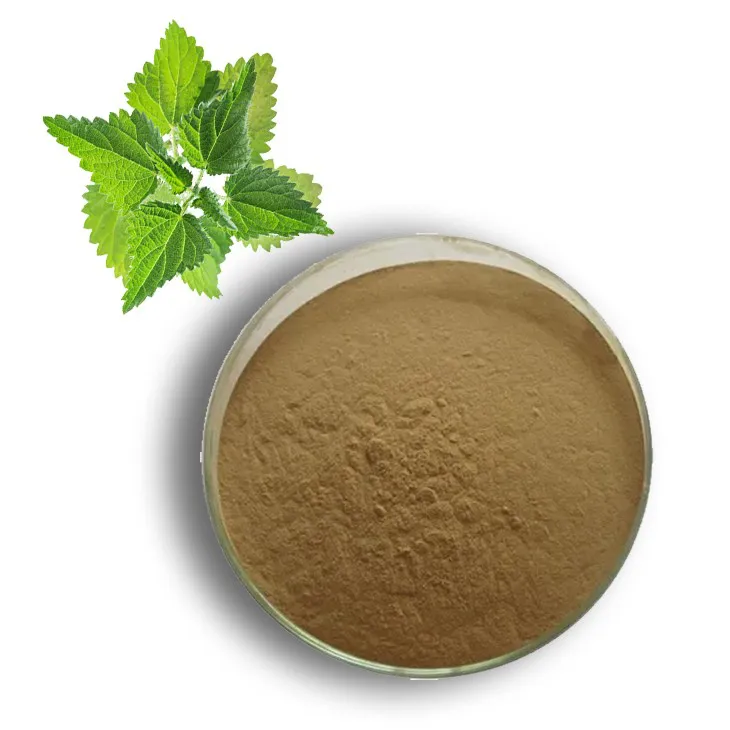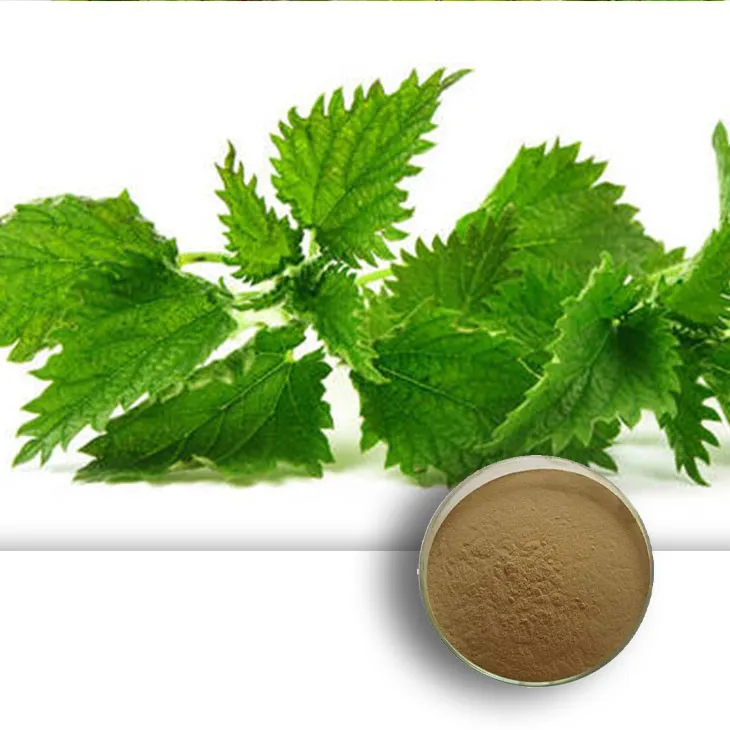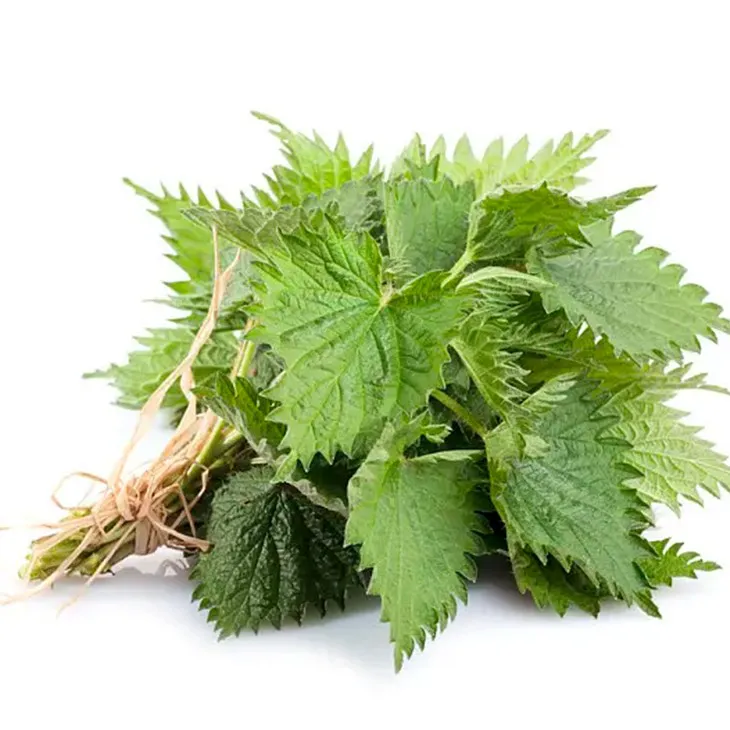- 0086-571-85302990
- sales@greenskybio.com
All about Nettle Leaf Extract.
2024-12-18

1. Introduction
Nettle leaf extract has emerged as a fascinating and versatile natural substance in recent years. It is derived from the common nettle plant, scientifically known as Urtica dioica. This plant has a long history of use in traditional medicine across different cultures. The extract is obtained through various methods, typically involving drying and grinding the nettle leaves followed by extraction using solvents such as ethanol or water. The resulting extract is a concentrated form of the active compounds present in the nettle leaves, which hold great potential in multiple fields.

2. Pharmacological Activities
2.1 Analgesic Effects
One of the most studied pharmacological activities of Nettle leaf extract is its potential analgesic effects. Pain is a complex physiological and psychological phenomenon, and finding natural alternatives for pain management is of great interest. Research has suggested that certain compounds in the Nettle leaf extract may interact with the body's pain receptors or modulate the inflammatory processes associated with pain. For example, some studies have shown that the extract can reduce pain in animal models of arthritis. However, more research is needed to fully understand the mechanisms and to determine its effectiveness in human clinical trials.
2.2 Anti - inflammatory Properties
Nettle leaf extract also exhibits anti - inflammatory properties. Inflammation is a natural response of the body to injury or infection, but chronic inflammation can lead to various diseases. The extract contains bioactive compounds such as flavonoids and phenolic acids that have been shown to inhibit the production of pro - inflammatory cytokines. In vitro studies have demonstrated that nettle leaf extract can suppress the activation of inflammatory cells, thereby reducing the overall inflammatory response. This makes it a promising candidate for the treatment of inflammatory conditions such as rheumatoid arthritis, dermatitis, and inflammatory bowel disease.
2.3 Antioxidant Activity
The antioxidant activity of nettle leaf extract is another important aspect. Oxidative stress, caused by an imbalance between the production of reactive oxygen species (ROS) and the body's antioxidant defense mechanisms, is implicated in many diseases including cancer, cardiovascular diseases, and neurodegenerative disorders. Nettle leaf extract is rich in antioxidants such as vitamin C, beta - carotene, and various polyphenols. These antioxidants can scavenge free radicals, prevent lipid peroxidation, and protect cells from oxidative damage. Studies have shown that the extract can increase the antioxidant status in cells and tissues, which may contribute to its potential health - promoting effects.

3. Nutritional Value
3.1 Amino Acids
From a nutritional perspective, nettle leaf extract is a valuable source of essential amino acids. Amino acids are the building blocks of proteins, and essential amino acids cannot be synthesized by the body and must be obtained from the diet. Nettle leaves contain all the essential amino acids, including leucine, isoleucine, valine, phenylalanine, methionine, tryptophan, and lysine. These amino acids play crucial roles in various physiological processes such as muscle growth and repair, hormone synthesis, and immune function. Incorporating nettle leaf extract into the diet can help supplement the amino acid requirements, especially for individuals following a vegetarian or vegan diet.
3.2 Fatty Acids
In addition to amino acids, nettle leaf extract also contains fatty acids. Fatty acids are important for energy production, cell membrane structure, and the regulation of inflammation. Nettle leaves are a source of both saturated and unsaturated fatty acids. The unsaturated fatty acids, such as omega - 3 and omega - 6 fatty acids, are particularly beneficial as they have anti - inflammatory properties and are essential for normal brain development and function. The presence of these fatty acids in nettle leaf extract makes it a potential nutritional supplement for maintaining good health.

4. Applications in the Manufacturing Industry
4.1 Biodegradable Plastics
The use of nettle leaf extract in the production of biodegradable plastics is an area of growing interest. Traditional plastics are non - biodegradable and pose a significant environmental threat. Nettle leaf extract, due to its fibrous nature, can be used as a reinforcement material in biodegradable polymer matrices. The cellulose and lignin present in the nettle leaves can improve the mechanical properties of the plastic, such as tensile strength and modulus. Moreover, the natural compounds in the extract may also contribute to the biodegradability of the plastic, allowing it to break down more easily in the environment. This makes nettle - based biodegradable plastics a more sustainable alternative to conventional plastics.
4.2 Sustainable Textiles
Nettle leaf extract also has potential applications in the production of sustainable textiles. The fibrous properties of nettle make it suitable for textile production. Nettle fibers can be processed to produce a fabric that is soft, durable, and has good breathability. The addition of nettle leaf extract can enhance the natural properties of the textile, such as its antibacterial and anti - odor properties. This is due to the presence of bioactive compounds in the extract. Additionally, nettle - based textiles are more sustainable as they require less energy and water compared to conventional cotton or synthetic textiles, and the cultivation of nettle plants has a lower environmental impact.
5. Safety and Precautions
While nettle leaf extract offers many potential benefits, it is important to consider safety and precautions. In some cases, direct contact with fresh nettle plants can cause skin irritation due to the presence of stinging hairs. However, the processed extract is generally considered safe for consumption in appropriate doses. Nevertheless, it may interact with certain medications, especially those that affect blood clotting or blood pressure. Pregnant and breastfeeding women should also consult a healthcare provider before using nettle leaf extract supplements. It is always advisable to start with a low dose and monitor for any adverse reactions when using any new supplement or product containing nettle leaf extract.
6. Future Perspectives
The future of nettle leaf extract looks promising. As research continues to uncover its various properties and potential applications, there are several areas that are likely to see further development. In the field of medicine, more clinical trials are needed to confirm its effectiveness in treating various diseases and to optimize dosing regimens. In the manufacturing industry, efforts will be made to scale up the production of nettle - based biodegradable plastics and sustainable textiles, and to improve their performance and cost - competitiveness. There is also potential for the development of new products based on nettle leaf extract, such as nutraceuticals and cosmeceuticals. Overall, nettle leaf extract has the potential to make significant contributions to both human health and environmental sustainability in the future.
FAQ:
What are the main pharmacological activities of nettle leaf extract?
One of the main pharmacological activities of nettle leaf extract is its potential analgesic effects, which can be useful for pain management.
What nutrients can be found in nettle leaf extract?
Nettle leaf extract is a source of essential amino acids and fatty acids.
How can nettle leaf extract be used in the manufacturing industry?
Due to its fibrous and chemical properties, nettle leaf extract is being considered for use in the production of natural - based products, such as biodegradable plastics or sustainable textiles.
Are there any other potential health benefits of nettle leaf extract?
While the analgesic effects are one potential health benefit, further research may uncover other benefits. However, currently, its role as a source of essential nutrients is also important for overall health.
Is nettle leaf extract safe for consumption?
While in general nettle leaf extract can be consumed, it may cause allergic reactions in some people. Also, excessive consumption may lead to side effects. It is always advisable to consult a healthcare professional before starting any new supplement.
Related literature
- The Pharmacological Properties of Nettle Leaf Extract"
- "Nutritional Components in Nettle Leaf Extract: A Comprehensive Review"
- "Nettle Leaf Extract in the Manufacturing of Sustainable Materials"
- ▶ Hesperidin
- ▶ citrus bioflavonoids
- ▶ plant extract
- ▶ lycopene
- ▶ Diosmin
- ▶ Grape seed extract
- ▶ Sea buckthorn Juice Powder
- ▶ Beetroot powder
- ▶ Hops Extract
- ▶ Artichoke Extract
- ▶ Reishi mushroom extract
- ▶ Astaxanthin
- ▶ Green Tea Extract
- ▶ Curcumin Extract
- ▶ Horse Chestnut Extract
- ▶ Other Problems
- ▶ Boswellia Serrata Extract
- ▶ Resveratrol Extract
- ▶ Marigold Extract
- ▶ Grape Leaf Extract
- ▶ blog3
- ▶ blog4
- ▶ blog5
-
Pure 85% Tomentil Extract.
2024-12-18
-
Nutmeg Extract
2024-12-18
-
Agaricus Blazei Extract
2024-12-18
-
Kupilu Extract
2024-12-18
-
Mangosteen extract powder
2024-12-18
-
Maca Extract
2024-12-18
-
Black Rice Extract
2024-12-18
-
Lavender Extract
2024-12-18
-
Motherwort Extract
2024-12-18
-
Beetroot Powder
2024-12-18
-
Bilberry Extract
2024-12-18





















